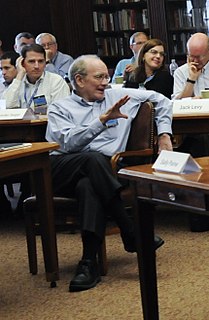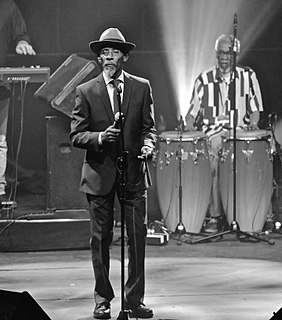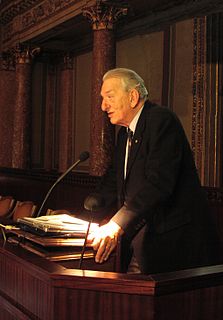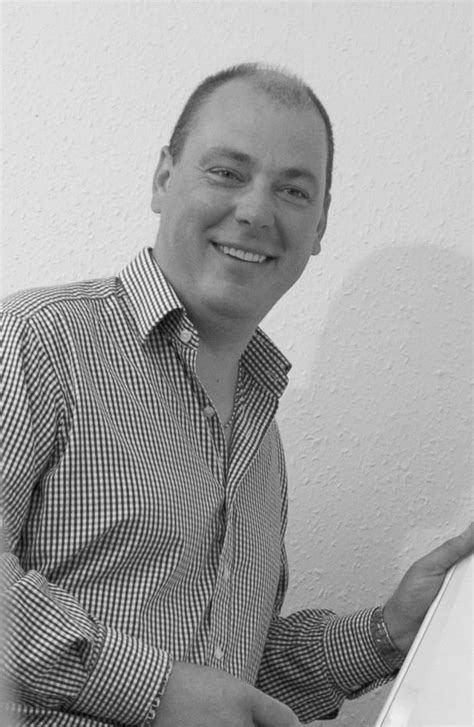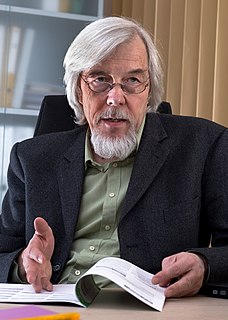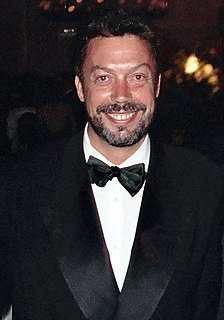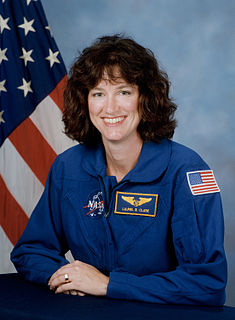Top 1200 Historical Research Quotes & Sayings - Page 2
Explore popular Historical Research quotes.
Last updated on November 19, 2024.
I expressed skepticism, in the first chapter, about the utility of time machines in historical research. I especially advised against graduate students relying on them, because of the limited perspective you tend to get from being plunked down in some particular part of the past, and the danger of not getting back in time for your orals.
The idea of a method that contains firm, unchanging, and absolutely binding principles for conducting the business of science meets considerable difficulty when confronted with the results of historical research. We find, then, that there is not a single rule, however plausible, and however firmly grounded in epistemology, that is not violated at some time or another.
We sometimes talk as if "original research" were a peculiar prerogative of scientists or at least of advanced students. But all thinking is research, and all research is native, original, with him who carries it on, even if everybody else in the world already is sure of what he is still looking for.
What distinguishes the historical social system we are calling historical capitalism is that in this historical system capital came to be used (invested) in a very special way. It came to be used with the primary objective or intent of self-expansion. In this system, past accumulations were 'capital' only to the extend they were used to accumulate more of the same.
....the popular music of Jamaica, the music of the people, is an essentially experiential music, not merely in the sense that the people experience the music, but also in the sense that the music is true to the historical experience, that the music reflects the historical experience. It is the spiritual expression of the historical experience of the Afro-Jamaican.
There is no need for historical research. The war didn't take place a thousand years ago. Over a million Iranians served at one time or another in the war fronts and most of them are living ordinary lives today and are available for interviews. These stories are largely unknown in Iran and when I tell them to my friends or students they usually laugh.
The notion of a writer sitting in a library doing research isn't what I want. The research I love doing isn't found in a book. It's what it feels like to rappel down the side of a building; to train with a SWAT team; to hold a human brain in your hands; or to dive for pirate treasure. Those are things I've done to research my stories.
This example illustrates the differences in the effects which may be produced by research in pure or applied science. A research on the lines of applied science would doubtless have led to improvement and development of the older methods - the research in pure science has given us an entirely new and much more powerful method. In fact, research in applied science leads to reforms, research in pure science leads to revolutions, and revolutions, whether political or industrial, are exceedingly profitable things if you are on the winning side.
Very strange bridges are used to make the passage from one state of things to another; we may lose sight of them in our surveys of general history, but their discovery is the glory of historical research. History is not the study of origins; rather it is the analysis of all the mediations by which the past was turned into our present.
I did a great deal of research to write 'The Irish Duke.' Since all the people in this Lords of the Realm series are real historical characters, everything had to be authentic. I researched Woburn Abbey, where my heroine lived, and everything about Barons Court in Ireland, which was the ancestral home of Abercorn.
Sociologists and historians have avoided looking for the family sources of wars and social violence. Whenever a group produces murderers, the early parental relationship must have been abusive and neglectful. Yet this elementary truth has not even begun to be considered in historical research; just stating that poor mothering lies behind wars seems blasphemous.
If all the evidence is weighed carefully and fairly, it is indeed justifiable, according to the canons of historical research, to conclude that the sepulcher of Joseph of Arimathea, in which Jesus was buried, was actually empty on the morning of the first Easter. And no shred of evidence has yet been discovered in literary sources, epigraphy, or archaeology that would disprove this statement.
I once did an event with Ian Rankin where he said he didn't really need to do much background research because his books are set in the present, and I just thought: 'You lucky, lucky beast!' because as a historical novelist, I live constantly on the edge of wondering whether tissues had been invented.
Monsanto will not come empty-handed. Monsanto will come with a big bag of money. And because these governments are poor, when they are shown money for their research institutions, for their universities, for their professors, they are very quick to say yes, and I can tell you that when Monsanto came to Kenya, they were able to be given permission to do research in one of our research institutions, and yet there was not a single law to control such research.
When you read a history or biography you are entitled to imagine that it is as accurate as the authors can make it. That research has gone into it and we say "This is a history of the civil war, this is a biography of Lincoln" whatever. But you don't make any such supposition when you say "This is a historical novel."
Wellcome Trust focuses on supporting outstanding researchers, accelerating the application of research, and exploring medicine in historical and cultural contexts. We believe passionately that breakthroughs emerge when the most talented researchers are given the resources and freedom they need to pursue their goals.
Research is an expression of faith in the possibility of progress. The drive that leads scholars to study a topic has to include the belief that new things can be discovered, that newer can be better, and that greater depth of understanding is achievable. Research, especially academic research, is a form of optimism about the human condition.
In 1998, I set up and directed a research group at the Nanotechnology Institute newly created in the Research Center of Karlsruhe. This allowed to offer to former post-doctoral coworkers the opportunity to develop and to progressively set up independent research activities in nanoscience and nanotechnology.
